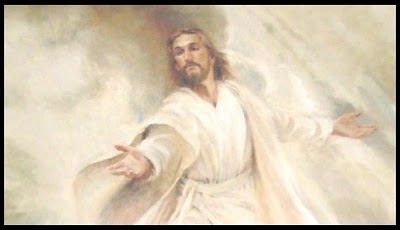Sacrifice is the test of love. It is only when we have the capacity not to
withhold for ourselves our most precious possession for the sake of another,
only when we can give up even that which is most important to us for the good
of the beloved, only then that we truly love.
 Abraham’s devotion to God was tested. The first reading today (Gn 22: 1-2, 9a,
10-13, 15-18) recounts the chilling moment when Abraham was about to offer up
his beloved son, Isaac, as a holocaust.
Isaac was everything to Abraham.
Precisely because of Abraham’s love for his son that God asked him to
offer up his beloved son as a sacrifice. Could he give up his son and
everything that his son meant to him? Abraham proved his utmost devotion to God
when he obeyed without questions God’s command and kept within himself the pain
of having to sacrifice his own son.
Abraham’s devotion to God was tested. The first reading today (Gn 22: 1-2, 9a,
10-13, 15-18) recounts the chilling moment when Abraham was about to offer up
his beloved son, Isaac, as a holocaust.
Isaac was everything to Abraham.
Precisely because of Abraham’s love for his son that God asked him to
offer up his beloved son as a sacrifice. Could he give up his son and
everything that his son meant to him? Abraham proved his utmost devotion to God
when he obeyed without questions God’s command and kept within himself the pain
of having to sacrifice his own son.
We know the rest of the story of course. God’s messenger stopped Abraham from slaying
his son. The messenger said: “I know now how devoted you are to God,
since you did not withhold from me your own beloved son.” A ram caught in the thicket was offered up as
a holocaust instead of Isaac.
God could not allow Abraham to harm Isaac, much less to
sacrifice him, his own beloved son, as a holocaust. God certainly knew how excruciating the pain
would be for a father to lose a beloved son by giving him up. So, God spared the life of Isaac. God spared Abraham
from the most unbearable pain a father may experience.
The ultimate test of God's love. But this test of Abraham’s devotion through an act of
sacrifice somehow prefigures God’s own act of manifesting his love for his
people—for all of us. God, whom Jesus
called his Father, would come to the point when He would allow his own beloved
Son to be sacrificed on the cross for our sake. God, the loving Father, the same God who
spared Abraham and Isaac, kept within himself the unbearable pain when He did
not spare his own Son in order to save us! God remained silent, and He must be in great
pain, when Jesus was about to die on the cross calling on his name, asking him,
“Why have you abandoned me?”
St. Paul’s insight into the greatness of this sacrificial
love is expressed in his assuring letter to the Romans: “He who
did not spare his own Son but handed him over for us all, how will he not also
give us everything else along with him?” (Rom 8: 32).
What else can God refuse to do for our sake after having
gone through the ultimate test of his love for us—giving up his own beloved
Son? What more can we ask for from this
loving God who has given up everything for our sake?
And yet, the cruelest fact of our human insensitivity, we
continue to doubt the love of God at some dark hours of our lives!
Invitation to confidence in the love of God. This second Sunday of Lent invites us to have confidence
in God’s love for us. The message of our
readings is crystal clear: God’s love is
beyond doubt. God’s love will see us
through thick and thin, through floods and droughts.
Jesus’ transfiguration in today’s gospel reading (Mk. 9:
2-10) is meant to build the confidence of the followers who witnessed the
event—Peter, James, and John. Jesus’ awesome
appearance with Moses and Elijah at his sides is an assurance, a preview of his
glorious resurrection, which the apostles would hang onto when the darkest hour
of Jesus’ passion and death comes. The transfiguration event boosts the
confidence that God’s love will ultimately triumph even if for the moment there
are seemingly contrary evidences.
Reflection: Sacrifice is the test of love. Have we made it through the test? Do we really love? Can we bear silently our
suffering when it is for the good of the people dear to us? Our reflection
today has shown us that we can share in God’s salvific act of love whenever we
embrace any suffering brought about by our decision to love.
Let us allow this blessed season of Lent to help us see
clearly the greatness of God’s love for us and hence grow in the confidence
that we are truly loved. Whenever we see the image of Jesus being offered up on
the cross, may we perceive through it the love of the Father who has nothing
more to withhold as he has offered up for our sakes the one he calls “my
beloved Son.”


